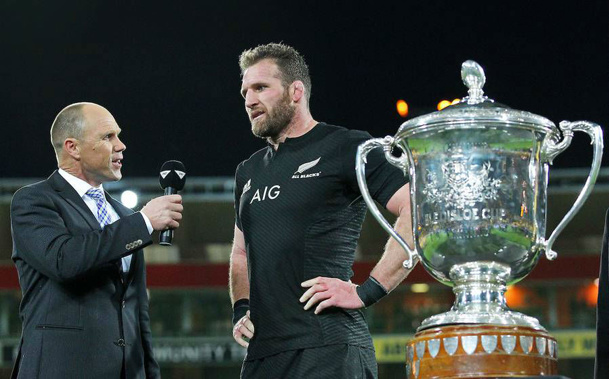
A Spark and TVNZ consortium could bid for rights to New Zealand Rugby fixtures when they are renewed after the 2020 season.
The Herald understands the two companies are discussing the matter, but it is uncertain how much of the annual provincial, Super and test match calendar would be involved in any bid.
Sources suggested it was "no secret" this was part of a long-term agenda. An initial package could come in the form of a bid for the 2019 Rugby World Cup rights.
Sky Television currently hold the rights to all New Zealand and SANZAAR-based competitions, from which NZR is estimated to earn $60-70 million annually.
NZR also signed a four-year deal with Vodafone as a digital platform in May. At the time chief executive Steve Tew said "this is not a rights deal, this is a commercial arrangement that we have with a technology provider".
A proposed merger between Sky and Vodafone was declined by the Commerce Commission this year.
NZR's bargaining power will increase if Spark and TVNZ come to the negotiating table, especially if conglomerate Amazon remain interested via their Prime Video streaming service.
In September, the Weekend Herald reported the bidding process would start earlier than usual - in April next year - so Amazon could address infrastructural issues like New Zealand's broadband speed.
The story suggested rights could be divvied between Sky and any challengers, meaning Amazon could cherry-pick games rather than take on full-scale production, or NZR could produce some elements in-house.
The most recent research from investment broking firm Forsyth Barr suggested Sky "faces considerable disruptive forces with escalating competition for both audiences and content. We expect a slow medium-term revenue bleed from subscriber attrition, customers trimming bundles and declining advertising revenue, with higher content costs a material longer-term threat".
If Spark and TVNZ mounted a challenge it could expect to find favour within the coalition government.
New Zealand First's manifesto includes a policy that games of national significance be broadcast free-to-air.
The concern about making that a reality is many professional sports are funded through broadcasting rights. Any successful bidder would need recompensing for any estimated loss in revenue if legislation is put in place to guarantee free-to-air coverage.
Using sport to win an audience share and advertising revenue can work well for free-to-air television networks. As an example, Channel Nine have created an annual cash cow in Australia through their international cricket coverage, albeit to a bigger population.
From a digital platform perspective, Spark can take heart that BT (formerly British Telecommunications PLC) has acquired the rights to the 2017-18 Ashes.
On the flipside, if Sky were to lose premium content such as rugby rights, the loss in subscribers could have a compounding effect on delivering profit to shareholders.
However, Sky still appear to be the company best-resourced to broadcast local rugby matches through their production arm and their intimate knowledge of the New Zealand live sports broadcasting scene.
Take your Radio, Podcasts and Music with you









